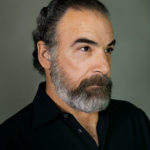[TW: rape, murder]
“The biggest public mistake I ever made was that I chose to do Criminal Minds in the first place. I thought it was something very different. I never thought they were going to kill and rape all these women every night, every day, week after week, year after year. It was very destructive to my soul and my personality. After that, I didn’t think I would get to work in television again.”
—Actor Mandy Patinkin, on why he “abruptly left” the CBS procedural after only two seasons.
This reminds me of a short story I read once, about a woman who becomes very attached to a CPR dummy that she perceives as being the victim of abuse, and ends up becoming a sort of surrogate for her own abuse and subsequent redemption; she ‘rescues’ the doll and in the act of doing so, ‘rescues’ herself from a life that has been mostly spent stuck in the past. Many of the events in the story are told in a way that makes you question whether or not what is happening is “real”, but about halfway through, that actually ceases to matter because the story isn’t about events. It about catharsis and transcendence.
What I’m trying to say that a lot of the media we construct that use victimization narratives function within a larger society on the macro level, and function within individuals at the micro level.
What this -means- is that just because these victims “aren’t real” does not stop them from representing real victims. I know a lot of survivors and victims use these narratives and media like procedural dramas as a tool for catharsis and healing, but that these stories function inside people to different ends sometimes, and can be a destructive force as well.
It comforts me deeply to have this acknowledged by someone who produced these narratives, and in a removed sort of way, lived them. I think too many people involved with producing victimization narratives are too quick to defend it without acknowledging the way they function on both micro and macro levels.
So I thank you, Mandy Patinkin, for keeping it real.

Just another WordPress site
